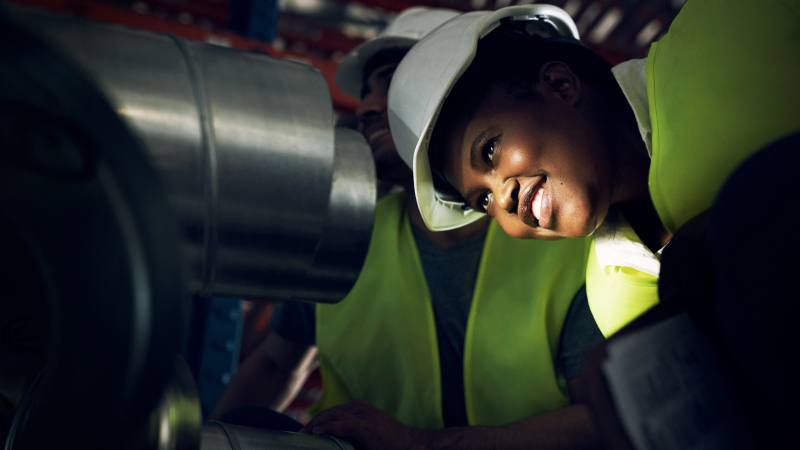- On 23 January 2025, GCIP hosted a Lunch and Learn session on GCIP’s GEDSI Lens Criteria and Toolkit for infrastructure project developers.
- The event was opened by Simon Lucas, Head of Profession for Climate and Environment Infrastructure and Energy at FCDO.
- The event showcased a proposed new methodology developed internally by GCIP.

Once an obscure concept, gender equality, disability and social inclusion (GEDSI) is becoming central to sustainable finance for infrastructure. The global capital invested in gender bonds, for example, more than tripled from $4.3 billion in 2020 to $14.5 billion in 2023. However, many project developers struggle to incorporate GEDSIinto their project plans and implementation, thereby missing out on this rapidly growing pot of gender-integrated investment.
In response to this challenge, the Green Cities and Infrastructure Programme (GCIP) has spent the better part of a year creating its GEDSI Lens Criteria and Toolkit for infrastructure project developers. “We couldn’t find a single tool that intentionally looked in a holistic way at all three aspects of GEDSI so that they could be integrated into all investment as a matter of course,” explained Smita Biswas, Impact Lead for GCIP. “And that’s what this toolkit achieves. It’s particularly aimed at public- and private-sector project developers who are looking to attract investment from climate and infrastructure funds, which now require GEDSI considerations.”
Smita was speaking at a GCIP Lunch and Learn event introducing the GEDSI Lens Criteria and Toolkit to the Foreign, Commonwealth and Development Office (FCDO). Held on 23 January 2025, the event was the third in a series of seven GCIP Lunch and Learn sessions showcasing world-leading and transformative UK methodologies to raise awareness and interest from FCDO Post.
Vidya Naidu, GCIP’s GEDSI Lead, spoke about the research that informed the creation of the criteria and toolkit. “We conducted a landscape analysis to understand the GEDSI requirements of nine leading climate finance providers, and we broke down the analysis according to the infrastructure project cycle,” she said. The team found that all nine investors require a basic standard of compliance related to social risks. Many have also introduced additional requirements that go beyond risk management to benefit vulnerable groups directly through investment. “This is being driven by a growing understanding of the commercial case for GEDSI,” explained Vidya. “Supporting GEDSI within these investments isn’t just the right thing to do, it’s the smart thing to do.”
The criteria and toolkit themselves were covered in more detail by Veronica DiBella, the GCIP Technical Lead who led their development. “The criteria are broadly aligned with those of 2X Global, but specifically tailored for infrastructure and expanded to include disability and social inclusion,” she noted. The toolkit combines these criteria with the infrastructure project lifecycle to identify and describe in detail actions that best incorporate GEDSI into such projects, and when to do so. It also provides case studies showing how – and how not – to support GEDSI goals through infrastructure projects.
The Lunch and Learn generated considerable interest in the GEDSI Lens Criteria and Toolkit from FCDO and partner agencies, with many keen to learn more about the new resource. GCIP now plans to pilot the criteria and toolkit in Ghana, Mozambique and Indonesia, three of its deep offer countries, and support their dissemination and uptake in FCDO, other FCDO-supported programmes and throughout the wider development community.
The UK’s Green Cities and Infrastructure Programme is tackling climate change and extreme poverty by accelerating the delivery of sustainable green cities and climate-resilient infrastructure.
Published
12/02/25
